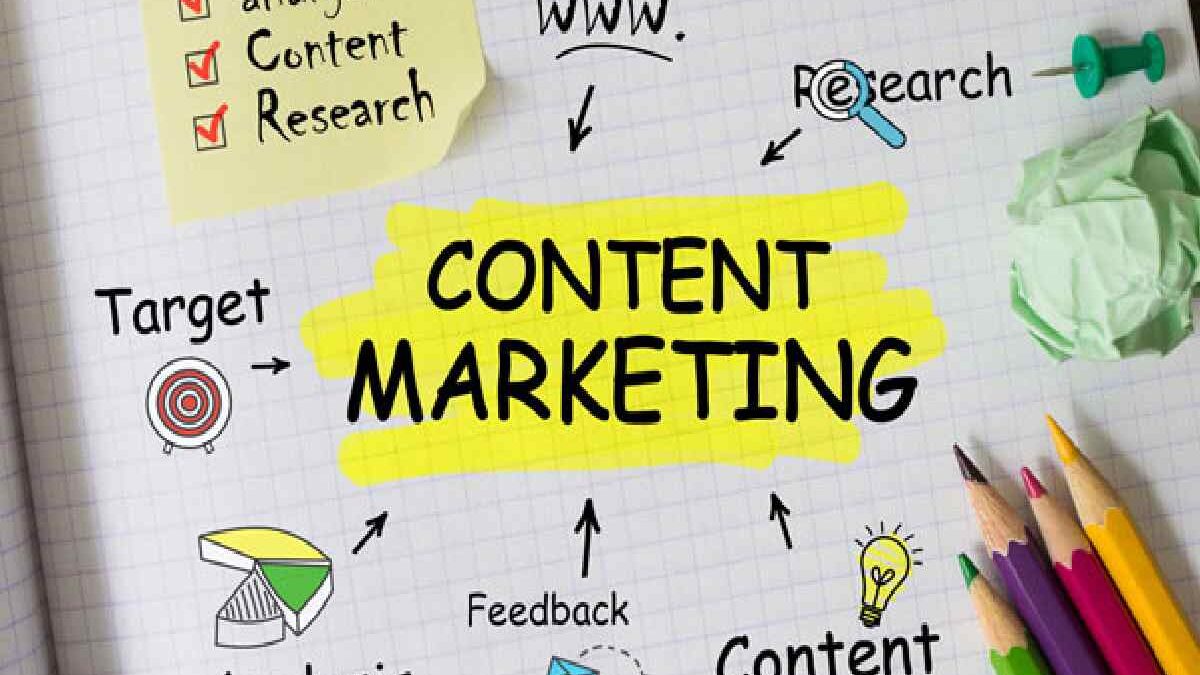Table of Contents
What is content marketing?
Content marketing… It’s essentially about creating and sharing valuable, relevant, and consistent content (such as blogs, videos, posts, and guides) to attract the right people and keep them engaged. The main goal? Getting them to take action that benefits your business, like making a purchase or booking a service.
But instead of directly shouting “Buy from me!” — you position yourself as a trusted go-to resource. You give your audience useful info, education, and maybe even a bit of entertainment, so they actually want to stick with you. Done right, this builds brand awareness, trust, and long-term loyalty.
Some key parts of content marketing are:
- Creating helpful, fun, or educational stuff your audience cares about — think blog posts, videos, podcasts, infographics, ebooks, guides… all that good stuff.
- Sharing it everywhere that makes sense — your website, social media, email list, or even guest posts on other sites.
- Focusing on making genuine connections that lead to awareness and trust.
- Caring about relevance and consistency more than just pumping out a ton of random content.
- Becoming such an authority that people come straight to you when they have a problem you can solve.
Purpose of content marketing
Content marketing is kinda like a magnet. It:
- Attracts an audience – Pulls in the right people who need what you offer.
- Engages that audience – Keeps them hooked with consistent, relevant stuff.
- Builds trust & affinity – Makes you look like the helpful, knowledgeable friend they can count on.
- Converts to customers – Guides them toward actions like buying, booking, or subscribing.
And the best part? Good content works for you even while you sleep — long after it’s been published. Using AI for content marketing can even help you analyze audience behavior and fine-tune your content strategy to maximize engagement.
The benefits of content marketing
- Increased consumer power
These days, buyers have all the control. They Google, compare, and decide for themselves. Old-school ads and cold calls? Not as effective anymore. People want trustworthy, helpful info.
Fun fact: According to the Custom Content Council, 69% of marketers say content marketing works better than direct mail and PR. - Supports all stages of the buyer’s journey
Great content isn’t just for sales — it helps at every stage:
- Awareness – Helps them realize they have a problem or an opportunity.
- Consideration – Gives comparisons, advice, and solutions.
- Decision – Boosts confidence that you’re the right choice.
And according to Aberdeen Group, companies that are great at content marketing convert 6x more leads into customers.
- Enhances SEO & discoverability
When you create content with the right keywords, you rank better in search engines. More visibility = more traffic = more leads. - Builds loyal brand advocates
It doesn’t end after someone buys from you. Keep giving them value, and they’ll stick around, refer friends, and promote your brand without you even asking.
4 Ways Content Marketing Helps Your Business
- Reduce customer acquisition costs – Good content keeps working overtime, unlike paid ads that stop when you stop paying.
- Improve lead quality – The right content naturally attracts the right people.
- Build a stable lead pipeline – Evergreen content can bring leads for years.
- Increase retention & loyalty – The more they interact with your content, the more likely they’ll stay with your brand.
Forms of content marketing
- Long-form written content
Blogs are the backbone of many content strategies because they help you show up on Google when people search for what you sell. For example, ranking for “best CRO software” can bring in buyers ready to purchase.
Through SEO, blogs drive traffic and can guide readers to the next step—like downloading a free guide for their email. Once you have that, you can keep nurturing them until they’re ready to buy. Evergreen blogs can bring leads for years with small updates.
- Social media posts
Social media builds brand awareness fast. B2C brands thrive, but B2B also does well, especially on LinkedIn, where people look for insights. It works quickly and feels personal, but posts fade fast—success means posting a lot of quality content consistently. This is why businesses often need tools and strategies to manage multiple social media accounts effectively without losing consistency or quality. - Video content
Video builds trust quickly through body language and tone, plus it can be reused for blogs, emails, or social clips. Smartphones make it easy to create, but the best videos usually have a face of the brand—losing that person can slow momentum. - Podcasts
Podcasts create a strong personal connection since people listen regularly, often during daily activities. They can build loyalty, but if the host leaves, the audience might follow them. - Email marketing
Email is reliable because you own your list—no algorithms cutting your reach. Subscribers are warm leads who’ve shown interest, making it a top channel for nurturing relationships and driving sales, especially in e-commerce.
Conclusion
Content marketing isn’t just another way to promote — it’s a strategy that helps you build authority, trust, and lasting relationships. It boosts your visibility, helps with SEO, and keeps your audience engaged over time. While ads stop working the moment you stop paying, content keeps bringing results long-term. When you stay consistent and focus on value, it becomes a growth engine that works for your business for years to come.

